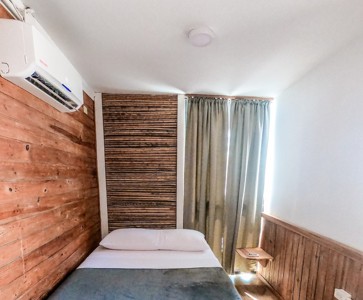A heating or a cooling system is a considerable investment. When choosing an HVAC unit, one of the most important things to consider is the warranties offered by the companies. An HVAC unit generally lasts for at least 20 years if maintained properly. However, if anything goes wrong with the unit within the next few days or months, the HVAC warranty will eliminate the need for additional repair costs.
Every consumer should be aware of the types & terms of the warranty that comes with HVAC units. One should look for a company that offers the best warranties.
In this article, we have shared an end-to-end guide on what to look for in an HVAC warranty, how the warranty works, and what a warranty covers. Read on to get answers to all your questions regarding the HVAC warranty.
What is the HVAC warranty?
An HVAC warranty is a type of service agreement that provides coverage for repairs, maintenance, and replacements for HVAC systems. This type of warranty usually covers both parts and labor costs for the duration of the warranty period.
Depending on the HVAC system and the warranty provider, some air conditioning warranties can last anywhere from one to ten years. In addition to covering repair costs, many warranties also provide additional benefits, such as a periodic inspection of your HVAC system for an extended life expectancy.
It’s important to remember that warranties vary greatly depending on the type of system and the company offering the warranty. You must go through the terms and conditions before signing any agreement to ensure that you understand what is and isn’t covered by the warranty.
Common Types of warranties for HVAC Systems
Here are various types of warranties you’ll come across.
Manufacture warranty
As the name suggests, a manufacturer warranty is offered directly by the manufacturer of the HVAC unit. This kind of warranty covers any manufacturing faults, defects & related repairs. However, the details may vary between the providers.
The Government regulates a manufacturer warranty to protect consumer rights. A consumer can register the product details with the manufacturer within sixty days of installation to receive extra perks and benefits. To register your HVAC system, you need to provide the product’s serial number, installation date, model number & few other information.
Extended Warranty
Extended warranties are service contracts offered & paid outside the primary manufacturer’s warranty. The extended warranty provides extended coverage past the period of the basic warranty. You can either purchase an extended warranty while buying the unit or can even buy it later. However, you are not bound to buy the warranty from the HVAC company as one can buy these warranties from other third-party providers as well.
Home Warranty
People often get confused between a home warranty and homeowners insurance. The purpose of opting for a home warranty is to cover the damages and breakdowns caused by daily usage. Although one has to pay an extra amount to avail of this home warranty, this expense is easier to bear than paying a hefty amount to repair an unplanned system breakdown. For this, the consumer has to pay a monthly or annual fee to remain stress-free about any sudden breakdowns.
Installation Warranty
Apart from offering a warranty against the product, a reputed manufacturer should also offer an installation warranty. An installation warranty refers to protection against any accidental damage to the unit during the installation process.
Sometimes a problem might occur later with the unit due to the wrong installation; an installation warranty also covers such issues. Most reputed brands offer a 100% pay-back guarantee on the installation work.
Things you need to look for in an AC warranty
Following are the warranty details that every consumer should look for before purchasing an HVAC unit:
-
Warranty period offered by the manufacturer
-
The installation date
-
The parts and equipment covered by the warranty
-
Labor cost
-
List of parts included and excluded in the warranty certificate
-
Steps to register for the warranty of the HVAC system
-
Steps to file a claim
Things that are not included in the HVAC warranty
An HVAC warranty generally does not cover the following:
-
Any weather-related damage
-
Any pest-related damage
-
Damage caused by negligence or misuse
-
Any damage from corrosive environments
What will void your HVAC system warranty?
An HVAC warranty can be voided in certain circumstances. Here are common reasons why the manufacturer may void a warranty:
-
Proper maintenance is required to let your unit function properly. If the technician finds out that any damage is caused due to improper maintenance, then your warranty won’t cover such repairs.
-
If you accidentally cause any system damage, you will end up voiding the warranty.
-
An HVAC system needs to be handled by trained HVAC professionals. If you try to fix your HVAC problem by following any DIY method and damaging any part or equipment, it will void the warranty.
-
A particular HVAC unit model might require parts that are compatible with it. Using a generic part that is light on the pocket might cause long-term damage to your unit. An HVAC warranty does not cover any such damage caused due to wrong components.
FAQ’s
How much can the extended HVAC warranty cost?
On an estimate, an extended AC warranty in the US for two years of coverage may cost from $180 to $385. However, the cost varies depending on the unit type. For example, an extended AC unit warranty for furnace units costs less than AC units.
How long are HVAC warranties valid?
Today, most trusted brands offer 5 to 10 years of HVAC warranty. The warranty covers the compressor as well.
Do home warranties cover HVAC Repairs?
Yes, home warranties cover HVAC repairs and the replacement of certain unit parts. Home warranties will cover any damages or breakdowns caused due to regular usage.
Endnote
HVAC warranties have improved a lot in the past few years. Consumers today expect better coverage from manufacturers. As mentioned earlier, an HVAC unit is a huge office or home investment. As a smart consumer, you should always know every detail related to the HVAC warranty to get the maximum benefit out of it. Before purchasing any HVAC unit, always conduct a thorough comparison between different brands and the warranties offered by them.





